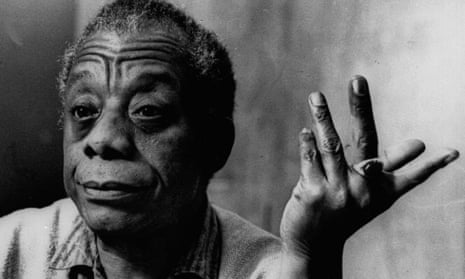The Pulitzer-nominated poet Laurie Sheck, a professor at the New School in New York City, is being investigated by the university for using the N-word during a discussion about James Baldwin’s use of the racial slur.
The investigation has been condemned by the Foundation for Individual Rights in Education (Fire), which is calling on the New School to drop the “misguided” case because it “warns faculty and students that good-faith engagement with difficult political, social, and academic questions will result in investigation and possible discipline”.
Sheck, who is white, was teaching a graduate course this spring on “radical questioning” in writing. She assigned students Baldwin’s 1962 essay The Creative Process, in which the black American writer and civil rights activist argued that Americans have “modified or suppressed and lied about all the darker forces in our history” and must commit to “a long look backward whence we came and an unflinching assessment of the record”. During the class, Sheck pointed to the 2016 documentary about Baldwin, I Am Not Your Negro, and asked her students to discuss why the title altered Baldwin’s original statement, in which he used the N-word instead of negro during an appearance on a talk show.
Sheck told Inside Higher Education that a white student had objected to her language. According to Sheck, she questioned the student about her objection, who said she had been told by a previous professor that white people should never use the term. At the end of term, the student gave a presentation about racism at the New School.
Sheck told IHE that she used the word because Baldwin – a New School alumnus – did, and “as writers, words are all we have. And we have to give [Baldwin] credit that he used the word he did on purpose”.
In June, months after the class, Sheck says she was called to a meeting where she was questioned about her choice of reading assignments, and how she had prepared students for discussing Baldwin’s essay. She told the university that graduate students on a literature course “should reasonably be expected to be able to discuss painful or offensive language and the various implications of altering the words of an iconic writer”. As the meeting ended, she was given the university’s guidelines for dealing with issues of discrimination and told to familiarise herself with them.
But Sheck told the Guardian that the university is proceeding with an investigation despite its regulations stating that complaints of discrimination must be lodged within 60 days of the incident, which had passed by the time the complaint was made against her.
“I have been left completely in the dark with the accusations against me still actively in place, and classes starting in two weeks,” she said. “Having taught at the New School with an impeccable record and consistently stellar student evaluations of my classes for nearly 20 years, this drawn-out approach appears to many as an unnecessarily callous and insensitive treatment of a devoted and long time faculty member.”
The New School’s response to Fire’s letter said only that it is “proud to be a place that embraces rigorous academic inquiry, diverse perspectives and respectful debate”, and that it “maintains confidentiality regarding personnel issues”. When asked by the Guardian if the investigation was proceeding, it said that open discussion of often difficult issues was central to its mission to provide an effective “learning environment”.
“In the context of the current political and cultural climate, we are bringing together faculty and students to use these principles to guide a pedagogical approach that respects academic freedom as well as an inclusive and respectful learning space,” it added.
PEN America has now joined Fire in calling for the investigation to be dropped. “Some words are so heinous that one can never expect to say them without some risk of offence,” said Jonathan Friedman, PEN’s project director for campus free speech. “But this is a case where intent matters. There is a distinction to be made between a racial slur wielded against someone and a quote used for pedagogical purposes in a class on James Baldwin. The New School cannot and must not discipline a professor for speech that is protected by the principle of academic freedom.”
Sheck said that she is prepared to teach her classes when term starts in two weeks, despite not hearing from the university.
“PEN has warned them that to act against me would be to violate academic freedom. If a university can censure a teacher for quoting James Baldwin and raising with graduate students – students who are aspiring writers – the issues involved in changing the words of an iconic American writer, then surely much is threatened and much is at stake, for thousands of people teaching throughout this country,” she said.
